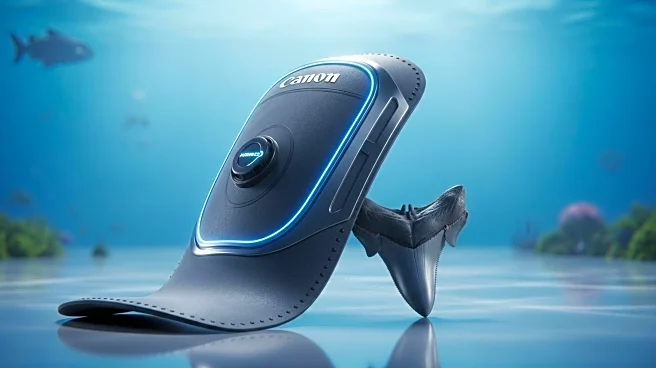What is the story about?
What's Happening?
A study conducted by Australian researchers has tested four bite-resistant wetsuit materials—Aqua Armour, Shark Stop, ActionTX-S, and Brewster—against great white and tiger shark bites. The study, published in Wildlife Research, found that these materials can reduce the severity of injuries and blood loss compared to standard neoprene wetsuits. The research involved real shark bite tests, categorizing damage severity from superficial to critical. While the materials showed differences in effectiveness, all reduced substantial and critical damage, which is typically associated with severe hemorrhaging and tissue loss.
Why It's Important?
The development of bite-resistant wetsuits is crucial as interactions between humans and sharks increase due to expanding coastal communities and marine activities. Great white and tiger sharks are responsible for the most unprovoked shark bites, making protective gear essential for safety. These materials offer a flexible and effective alternative to conventional chainmail suits, which are too heavy for activities like surfing and diving. By potentially reducing blood loss and trauma from shark bites, these wetsuits could save lives and enhance safety for marine enthusiasts and professionals.
Beyond the Headlines
The introduction of bite-resistant wetsuits could influence public perception and behavior regarding marine activities. As these materials become more widely available, they may encourage more people to engage in water sports, knowing they have an added layer of protection. Additionally, the development of these materials highlights advancements in material science, showcasing the potential for innovative solutions to address safety concerns in various industries.
















